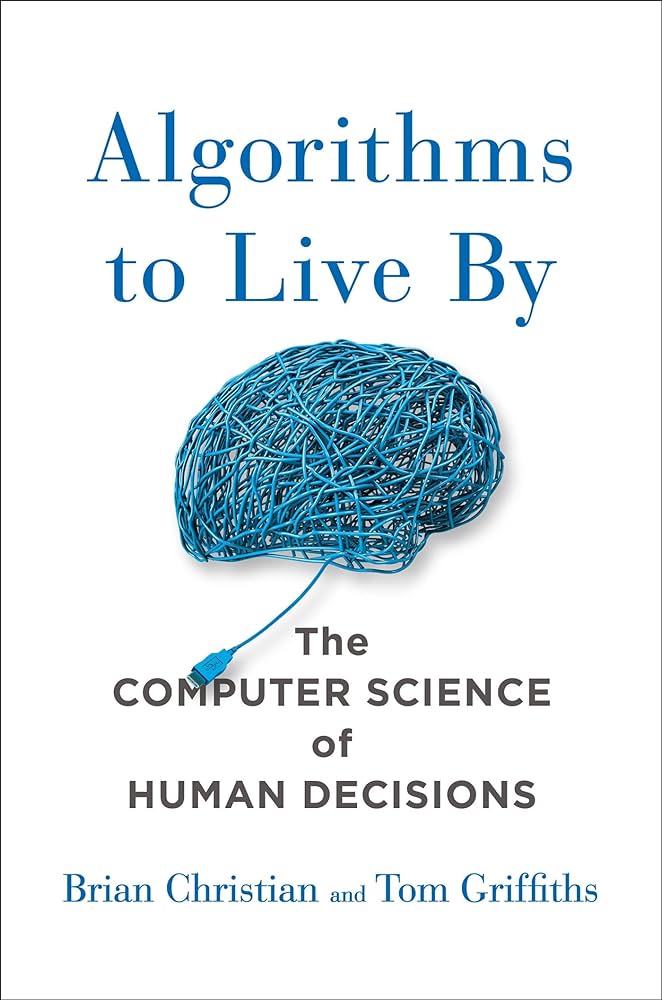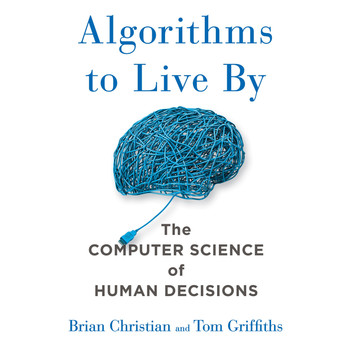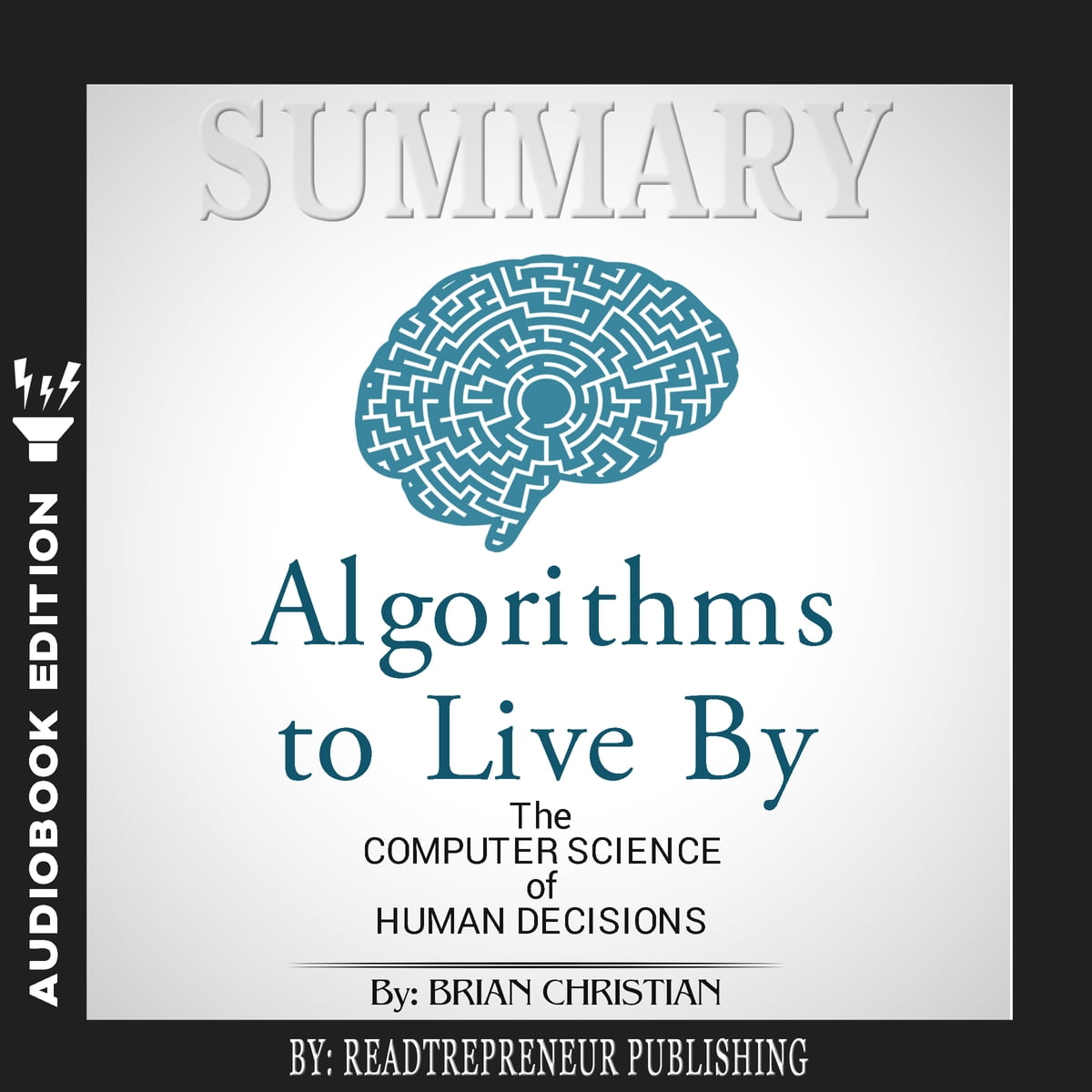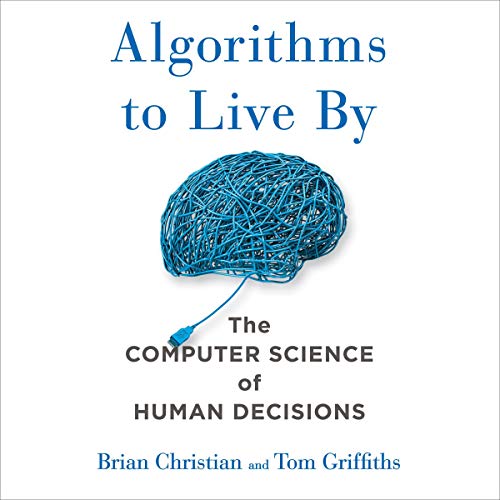Brian Christian’s “Algorithms to Live By” audiobook explores how computer algorithms can solve everyday human problems. It combines computer science with practical decision-making.
“Algorithms to Live By” by Brian Christian and Tom Griffiths offers a fascinating insight into how algorithms can improve our daily lives. The audiobook delves into the intersection of computer science and human decision-making, providing practical advice on how to apply these principles.
From optimizing schedules to making better choices, the book reveals how algorithms can streamline various aspects of life. It’s a unique blend of theory and practical guidance, making complex concepts accessible and engaging. Ideal for anyone interested in technology, psychology, or self-improvement, this audiobook offers valuable lessons on efficiency and smart decision-making.

Introduction To ‘algorithms To Live By’
Algorithms to Live By combines computer science with real life. The book shows how algorithms can solve daily problems. Simple rules help make better choices. People can use these rules every day. The book is easy to understand and follow. It connects complex ideas with simple examples. Brian Christian explains everything clearly. Readers can learn and apply these algorithms quickly. This approach makes life easier and decisions smarter.
Brian Christian wrote the book with Tom Griffiths. He explains computer science in a fun way. His writing is engaging and clear. Christian brings a fresh view on everyday problems. He uses real-life stories to explain algorithms. These stories make the book relatable. Christian’s perspective helps readers see the value of algorithms. This makes the book useful for everyone.
Decoding The Concept Of Optimal Stopping
The Secretary Problem is a famous concept. It helps in making the best choice. Imagine you are hiring a secretary. You want to choose the best one. You interview each candidate one by one. You can’t go back to a candidate you rejected. How do you choose the best?
Optimal Stopping tells us to reject the first 37% of candidates. Then, choose the next one better than all before. This gives the highest chance to pick the best secretary. It’s a balance between exploration and commitment.
Optimal Stopping isn’t just for hiring. It can be used in many life decisions. Choosing a house, finding a partner, or even parking a car. It’s about knowing when to stop looking and make a choice.
This method helps reduce regret. It makes decision-making easier. By following the 37% rule, you can make better choices in life. This makes your decisions more optimal and satisfying.
The Exploration Vs. Exploitation Dilemma
Exploration means trying new things. It brings excitement and learning. Exploitation uses what you know. It offers reliability and safety. Both are important in life.
Too much exploration can be risky. Too much exploitation can be boring. A balance is needed for a happy life.
Choosing a restaurant can be tricky. Trying a new one is exploration. Going to a favorite is exploitation. Balancing both can be fun.
Playing games also shows this balance. Trying new games is exciting. Playing favorites brings joy. Mixing both keeps you entertained.

Sorting Theory In Daily Decisions
Sorting helps to find information quickly. It makes life easier and more organized. By sorting, decisions become faster. This saves time and effort.
Many daily tasks use sorting. Arranging books by size or color, for example. This makes finding a book quick and simple.
Sorting affects choices. Well-sorted options are clear and easy to compare. This leads to better decisions.
Our brain loves order. Sorted items look more appealing. This can influence what we choose or buy.
Imagine a messy room. It feels stressful and confusing. A sorted room feels calm and inviting. This shows the power of sorting.
Sorting also helps in planning. By organizing tasks, we can see what to do first. This makes us more efficient and productive.
Caching: The Art Of Remembering What Matters
Computers use caching to store important data. This makes them faster. The human brain also uses caching. It helps us remember crucial information. Efficient caching can improve our daily lives. Focus on storing key memories.
Some strategies can help us remember better. Repetition is one method. Repeat important information often. Association links new information with known facts. This makes it easier to recall. Chunking breaks data into smaller parts. Smaller parts are easier to remember.
Scheduling For Optimal Productivity
Computers can help us be more productive. They use smart ways to decide what to do first. We can learn from these methods. One way is to list tasks in order of importance. Do the most important tasks first. This is called priority scheduling. It is very effective.
Time is precious. Use it wisely. Break big tasks into smaller ones. Finish one small task at a time. This method is called divide and conquer. It makes big tasks easier. Another technique is batch processing. Do similar tasks together. It saves time and energy.
The Game Theory Of Social Interaction
Game theory helps in predicting human behavior. People make strategic moves to get what they want. This theory studies how people make decisions in different situations. Everyone tries to pick the best action for themselves. The outcome depends on the actions of others too. People think about what others will do before they act. These strategic moves can be seen in games, business, and everyday life.
People often face choices between cooperation and competition. Sometimes, working together benefits everyone. Other times, competing is the better choice. The Prisoner’s Dilemma is a famous example. Two people must decide to cooperate or betray. Cooperation can lead to a better outcome for both. Betrayal might benefit one but harm the other. Understanding these choices helps in making better decisions in life.
Networks And Connectivity In Personal Relationships
Social networks are important for human interactions. They help us connect with friends and family. Scientists study these networks to understand how people connect. They use network theory to analyze relationships. This theory shows how people can be linked in different ways. Strong connections are usually with close friends and family. Weak connections can be useful for finding new opportunities. Understanding social networks helps us improve our relationships.
Network theory can help us build better connections. By knowing who is in our network, we can strengthen important relationships. Linking with new people can open new doors. Weak ties can help in job searches or new projects. Keeping strong ties helps in personal support. Balancing both types of ties is key. Always be open to meeting new people. This widens your network and brings new benefits.
Conclusion: The Human Algorithm
Computer algorithms can help in making better decisions. They offer efficient solutions to complex problems. By following these algorithms, we can optimize our daily lives. Use them to plan schedules, manage tasks, and even choose investments. The key is to blend them with human intuition. This creates a balanced approach to problem-solving.
Human-computer coexistence will shape our future. Both can learn and adapt from each other. Machines can handle repetitive tasks, freeing humans for creative work. This partnership will lead to innovations and improved quality of life. Embracing this coexistence opens new possibilities for growth and understanding.

Conclusion
“Algorithms to Live By” is a must-listen audiobook. It offers valuable insights into decision-making. Brian Christian’s work blends complex concepts with practical advice. You’ll find it both enlightening and applicable. Enhance your daily life with these algorithms. Give it a listen and transform your problem-solving skills.



